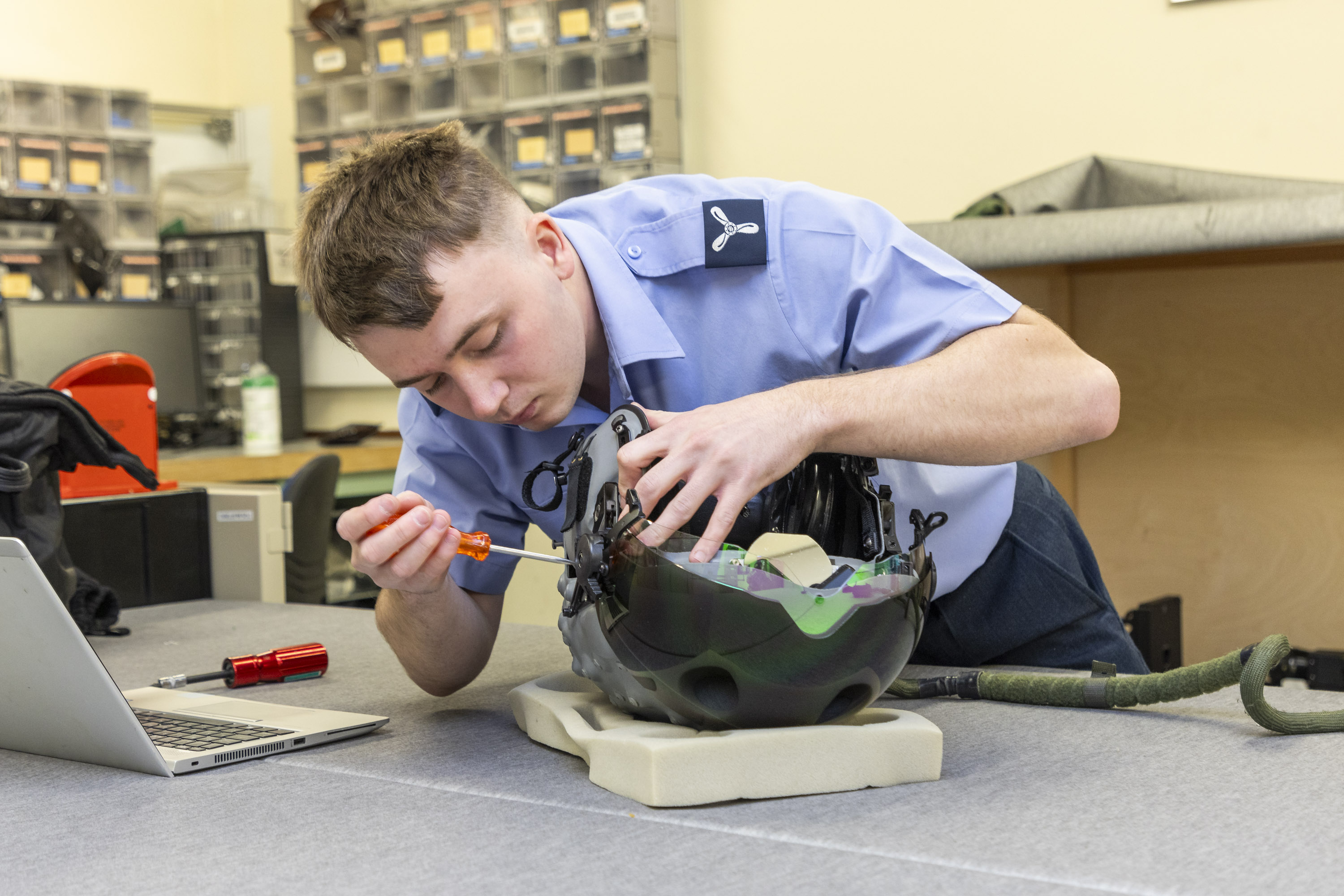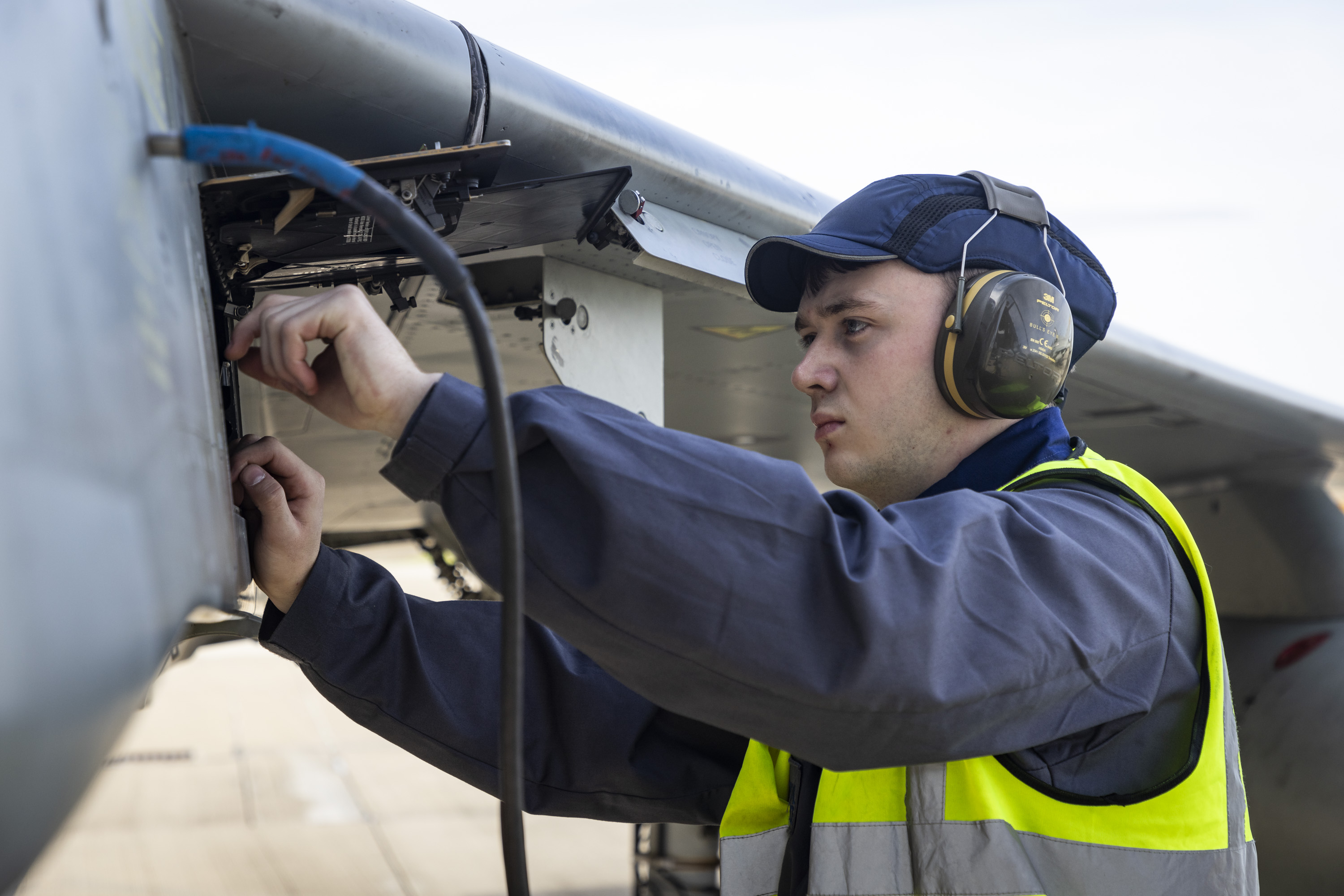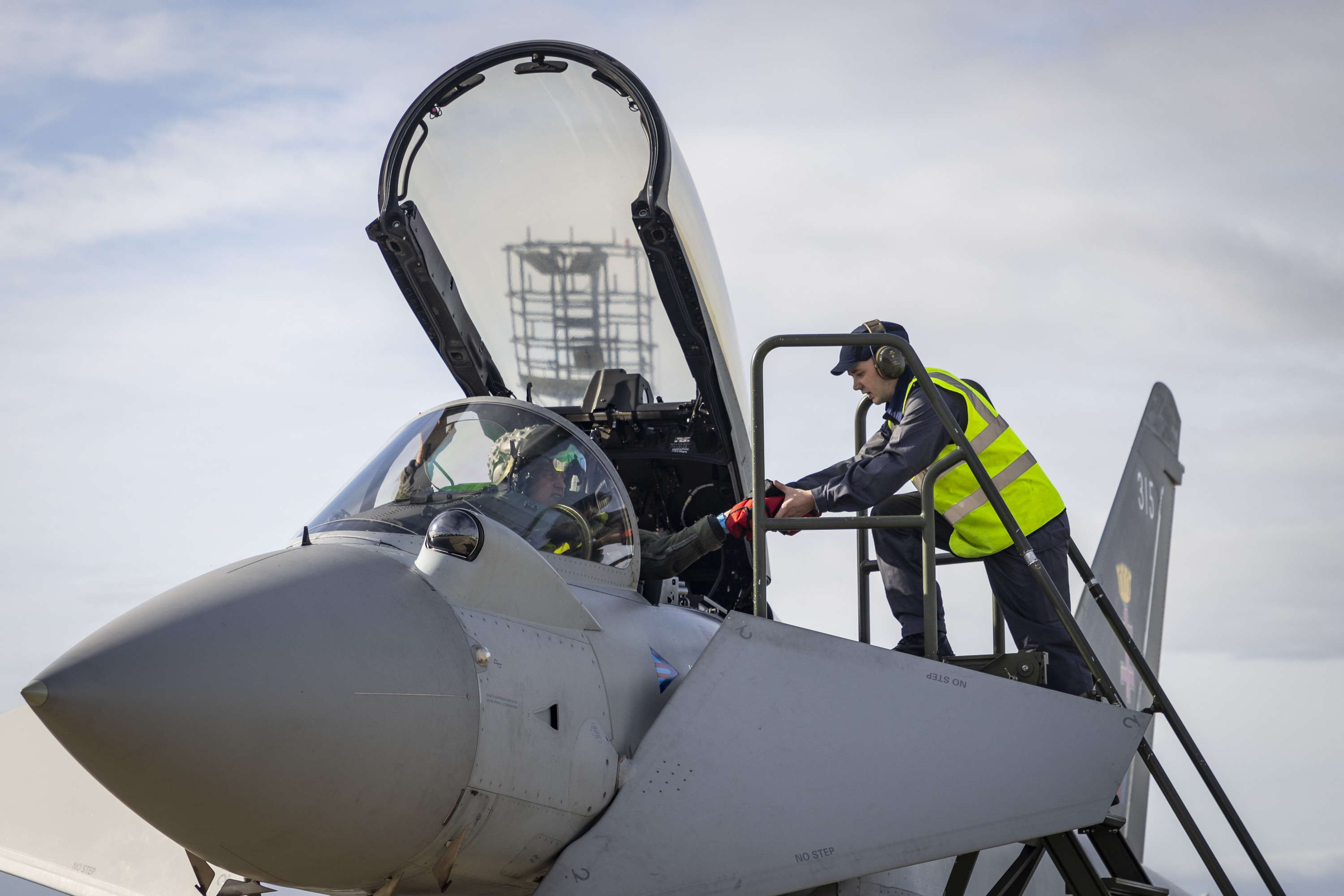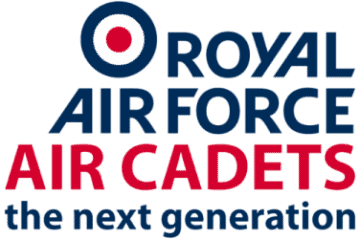THE FIRST Royal Air Force Survival Equipment Technician to also qualify in Flight Line Operations has just completed his first shift at RAF Coningsby in Lincolnshire.
AS1 Jenson Price trained as a Survival Equipment Technician. They maintain, test and repair cutting-edge aircrew equipment used in flight, and during aircraft emergencies. Survival Equipment Technicians also pack, maintain and repair the parachutes used in ejection seats, and by airborne forces.

In addition to their many other responsibilities, Flight Line Operators are involved in refuelling, applying external connections and power sources, marshalling, powering up and shutting down the aircraft. Simply put, Flight Line Operators make sure the plane is safe to fly and is securely shut down after it lands.
Having completed their technical training at RAF Cosford, a small group of Survival Equipment Technicians, including AS1 Price, undertook added training to include Flight Line Operations. A multi-skilled workforce is essential in the Royal Air Force. In today’s world far more than a one-person, one-job mindset is needed to stay agile and keep aircraft ready for operations.

AS1 Price said:
“Me and two others was sent on a four-week course at 41 Squadron, where they taught us the Flight Line Ops tasks, so we can get an aircraft ready for the pilot to fly, and get it safely powered down and secured when they come back. It’s important work and you have to get everything right, but it sits quite well with that I do as a Survival Equipment Technician.”
Wing Commander Bryn Kirby is Officer Commanding Air Wing Engineering at RAF Coningsby. He said:
“The last person to assess that an aircraft is safe to fly before it takes off is a Flight Line Operator. It is a key role, critical to aircraft operations, and the nature of Survival Equipment Technicians’ work means that they are a perfect fit for this additional training.”
Following this successful trial, the RAF Engineering Profession has begun the process of adopting basic flight line operations into Survival Equipment Trade Training. Future generations of Survival Equipment Technicians will have more to skills to offer, making themselves more deployable and the RAF more agile.
AS1 Price, from Yorkshire, joined the RAF in 2022 and has already completed his first successful shifts as a Flight Line Operator. He said:
“I chose Survival equipment because I wanted to be able to work with lifesaving equipment. Flight line ops was a very big change from my normal ‘squipper’ work I really enjoyed the training as I got to get hands on with the jet. My first shift on the line I was nervous but excited at the same time being fully independent on the jet.”

Wing Commander Kirby said:
“AS1 Price and his colleagues are showing us a picture of a modern organisation, where we can utilise the incredible talent of our workforce in areas that match their skills and competence. The Royal Air Force must fly and fight to win. To do that, it’s essential that our people receive the training and experience that will allow them to turn their hands to several skills when needed. Flight line ops and survival equipment maintenance have genuine synergies, and I’m sure there are more areas where we can develop in this way.”









